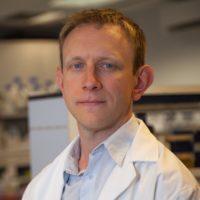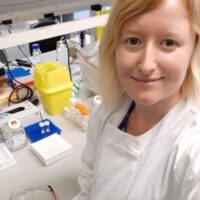Matrix Dynamics
Matrix Dynamics is a service run out of the Barts Cancer Institute, Queen Mary University of London, offering preclinical assays in a patient tissue-derived 3D tumour model.
Matrix Dynamics is committed to accelerating the development of immunotherapy drugs. Our Dynamic In Vitro Assay (DIVA) platform recapitulates the immunosuppressive microenvironment characteristic of solid tumours, enabling accurate and efficient development of immunotherapies. By offering both in-house and contract research services, we support pharmaceutical companies and academic researchers in bringing novel treatments to market more quickly and effectively.
Our multidisciplinary team at Barts Cancer Institute, QMUL, has extensive expertise in immuno-oncology, tissue engineering, and glycobiology. We aim to establish our technology as the gold standard for preclinical immuno-oncology studies and offer specialised expertise in tumour microenvironment target discovery to accelerate immunotherapy drug development.
The challenges of preclinical drug development
Immune-oncology companies face significant challenges in preclinical drug development. Around 98% of drugs with positive preclinical results subsequently fail when tested in humans. Current tumour models for preclinical development don’t accurately replicate the structure of tumours, offer limited readouts, and are time and resource-intensive. In addition, regulatory bodies increasingly advocate for relevant ex vivo models to minimise reliance on animal models.
How our model works
Our Dynamic In Vitro Assay (DIVA) platform provides a physiologically relevant disease model due to its success in maintaining the structural and immunosuppressive properties of solid tumours and its ability to measure several parameters in parallel.
DIVA consists of a series of semi-high-throughput assays run in decellularised tissue models of various types including breast, ovarian, pancreatic, and neuroblastoma cancer. Tissues are decellularised to yield the sample’s extracellular matrix (ECM), which has been shown to be a key driver of resistance to immunotherapy.
Following decellularisation, the ECM can be re-populated with cancer cell lines, macrophages, T Cells, fibroblasts and other cell therapies, providing a bespoke model tailored to partners' experimental requirements.
In parallel, tissues are characterised using either a multi-omics or histopathology approach, enabling the team to develop profile libraries of patient material and relate data back to assay results.

Introducing: Matrix Dynamics
Key facts
- Available for contract and in-house research
- Accelerate drug discovery and drug development in the immuno-oncology space
- Run efficacy, target discovery and mechanism of action studies
- Measure several parameters including immune cell phenotype, cell movement, cell killing and changes in the extracellular matrix in parallel
- Available across multiple solid cancers
Interested in working with us? Get in touch.
Meet the team
Dr Oliver Pearce

Dr Oliver Pearce completed a PhD in sugar chemistry in Ben Davis' group at the University of Oxford, after which he moved to the group of Ajit Varki at the University of California, San Diego, to study glycobiology using a similar approach to our synthetic sugars. Oliver is now a CRUK fellow and Barts Cancer Institute group leader in matrix biology.
Dr Eleanor Tyler
 Dr Eleanor Tyler obtained her BSc from the University of British Columbia, before moving to London to do an MSc at UCL and a PhD at Queen Mary University of London where she focused on high throughput screening of libraries of compounds (Named Inventor on four US patents and one international patent). Elly is now a senior postdoc in Oliver's group and has spent several years working with cell therapies and identifying novel ECM targets.
Dr Eleanor Tyler obtained her BSc from the University of British Columbia, before moving to London to do an MSc at UCL and a PhD at Queen Mary University of London where she focused on high throughput screening of libraries of compounds (Named Inventor on four US patents and one international patent). Elly is now a senior postdoc in Oliver's group and has spent several years working with cell therapies and identifying novel ECM targets.
Marcos Burger Ramos
Marcos obtained an MSc in chemistry from the University of Oxford before moving to London to do an MRes in cancer biology at Imperial College London. Marcos is now in the last year of his industry-sponsored PhD with Oliver and Neobe Therapeutics. His work focuses on extracellular matrix-related resistance mechanisms to immunotherapy and how we can overcome these. Marcos’ entrepreneurial efforts were recognised at the Cancer Research Horizons Innovation Awards where he was selected as a finalist for Young Entrepreneur of the Year.
Ludovica Tarantola
Ludovica completed her BSc and MSc degrees in Pavia and Milan, Italy, before moving to the UK for a research Masters in Translation Cancer Medicine from Kings College London. Ludovica is now an MRC-funded PhD student with Oliver with a focus on macrophages and how the ECM regulates macrophage phenotypes. Ludovica is currently a lead scientist with the ongoing contract research work within QMUL.
Katie Thornton
Katie obtained an MSc in Cancer and Molecular Pathology and Genomics before working as a laboratory technician at the Barts Cancer Institute, Queen Mary University of London. Katie has extensive experience in laboratory management and has been working on a Queen Mary Impact Fund grant enabling her to make our business and the DIVA platform market-ready. Katie has been instrumental in ensuring tissue sample access and is working alongside Ludovica on our current contract research project.
Key Publications
- Puttock EH, Tyler EJ, Manni M, et al. (2023). Extracellular matrix educates an immunoregulatory tumor macrophage phenotype found in ovarian cancer metastasis Nature Communications, doi: https://doi.org/10.1038/s41467-023-38093-
Key Partners
- Queen Mary Innovation
- Neobe
- Breast Cancer Now Tissue Bank
- Barts Gynae Tissue Bank
- Vivo Biobank
